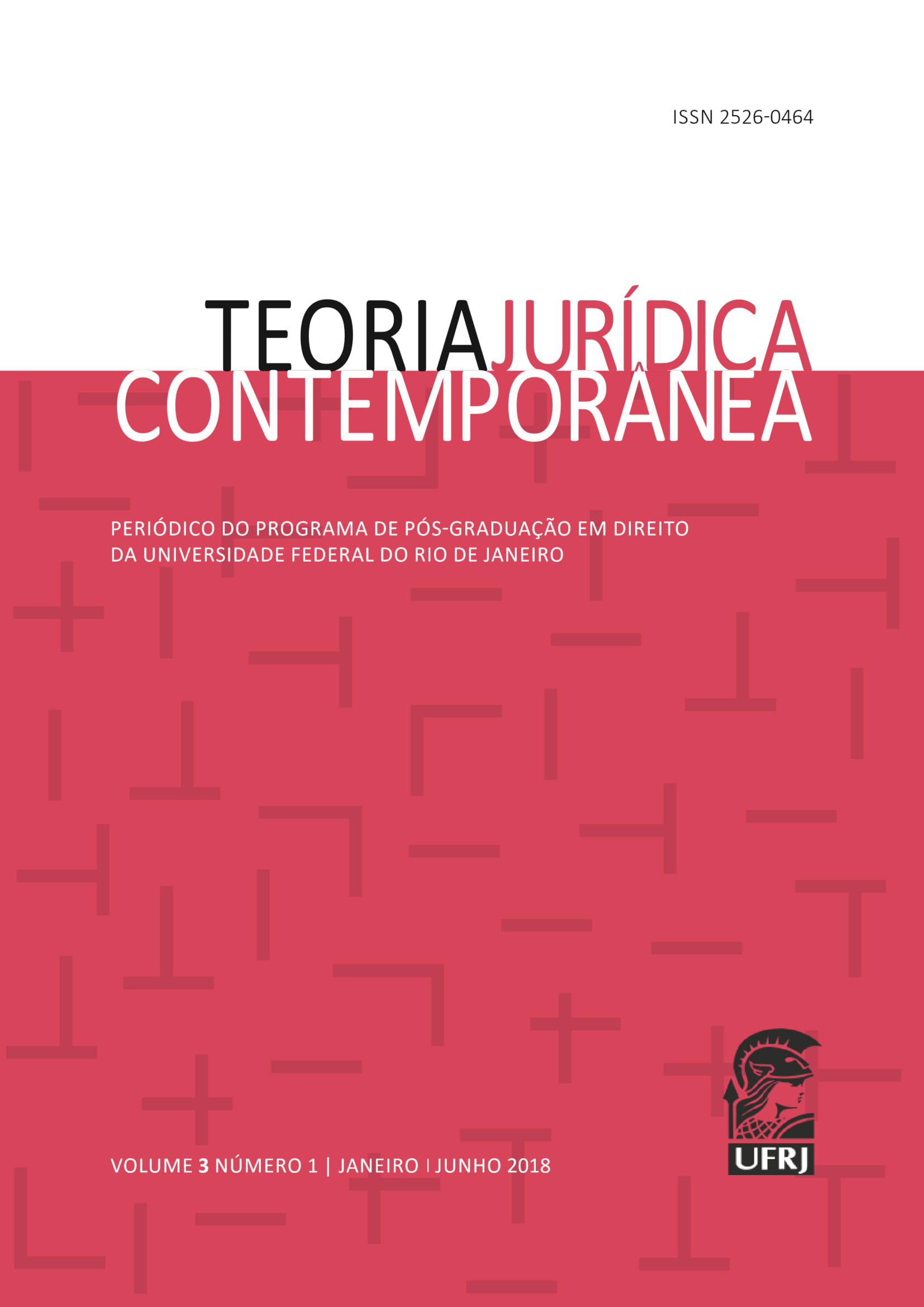Desobediencia: ¿Derecho o estrategia? A propósito de la reivindicación de la “política de desobediencia civil” en Catalunya
DOI:
https://doi.org/10.21875/tjc.v3i1.17462Palabras clave:
Filosofía del Derecho, Desobediencia Civil, Catalunya, Philosophy of Law, Civil Disobedience, Catalonia, Filosofia do Direito, Desobediência Civil, CatalunhaResumen
RESUMEN:
Aunque la tradición de la desobediencia civil y, más lejos aún, la del derecho a resistencia tiene antecedentes muy claros, hoy se ha producido un giro. El incremento del fenómeno de la indignación y revuelta contra el sistema ha propiciado lo que algunos consideran estratégia de desobediencia e incluso política de desobediência. Em este artículo se discute esa hipótesis desde la experiencia que procura la experiencia vivida en los dos últimos años en Cataluña.
ABSTRACT:
We are possibly facing a turning point in the tradition of the right of resistance and even civil disobedience. From the globalization of the phenomenon of the indignados, the recourse to the strategy of disobedience grows. There is even a claim for a policy of disobedience. In this article we draw on the experience of the last two years in Catalonia to discuss these theses
RESUMO:
Embora a tradição da desobediência civil e, mais ainda, a do direito à resistência tenha antecedentes muito claros, hoje houve uma reviravolta. O aumento do fenômeno da indignação e revolta contra o sistema levou ao que alguns consideram uma estratégia de desobediência e até uma política de desobediência. Neste artigo, esta hipótese é discutida a partir da experiência dos últimos dois anos na Catalunha.
Citas
BALIBAR, Étienne. “Las frontières de la démocratie”. La Decouverte, Paris, 1992.
__________. Droit de Cité. Culture et politique en démocratie. Paris: PUF, 2002.
__________. La proposition de l’egaliberté. Paris: PUF, 2010.
__________. Cittadinanza. Torino: Bollati Boringhieri, 2012. Bovero, Michelangelo. Una gramática de la democracia. Contra el gobierno de los peores. Madrid: Trotta, 2003.
DE LUCAS, Javier. “Los dilemas históricos de la democracia y su relevancia contemporánea”. Enrahonar, Barcelona, n. 48, pp. 1415, 2012.
__________. “Desobediencia y democracia. La hora de la ciudadanía”. Derechos y libertades, Madrid, n. 31, pp. 57-75, 2014.
RETZ, Jean-François Paul de Gondi. Mémoires. Miami: HardPress, 2013.
JHERING, Rudolf von. Der Kampf um’s Recht. Miami: HardPress, 2017.
LA TORRE, Massimo. Nostra legge é libertá. Anarchismo dei Moderni. Roma: DeriveApprodi, 2017.
PÉREZ, José Antonio. Manual práctico de desobediencia civil. Navarra: Pamiela, 1994.
RANCIÈRE, Jacques. Le Maître ignorant: Cinq leçons sur l’émancipation intellectuelle. Paris: Fayard, 1987.
__________. La haine de la démocratie. Paris: La Fabrique, 2005.
__________. Momentos políticos. Madrid: Clave Intelectual, 2011.
SHARP, Gene. From Dictatorship to Democracy. A conceptual framework for Liberation. New York: The New Press, 1963.
__________. The Politics of non Violent Action. Boston: Porter Sargent Publishers, 1973.
ZINN, Howard. Disobedience and Democracy. Nine Fallacies on Law and Order. Chicago: Haymarket Books, 1968.
__________. The Zinn Reader: Writings on Disobedience and Democracy New York: Seven Stories Press, 1997.
Descargas
Publicado
Número
Sección
Licencia
Los autores que publican en esta revista están de acuerdo con las siguientes condiciones:
- Los autores mantienen los derechos de autor y conceden a la revista el derecho de primera publicación, estando el trabajo simultáneamente bajo la Licencia de Atribución de Creative Commons que permite compartir el trabajo con el reconocimiento de la autoría y la publicación inicial en esta revista.
- Los autores pueden asumir contratos adicionales por separado, para la distribución no exclusiva de la versión del trabajo publicada en esta revista (por ejemplo, publicando en un repositorio institucional o como capítulo de un libro), con el reconocimiento de la autoría y la publicación inicial en esta revista.
- Se permite y se anima a los autores a publicar y distribuir su trabajo en línea (por ejemplo, en repositorios institucionales o como página personal) en cualquier momento antes o durante el proceso editorial, ya que esto puede generar cambios productivos, así como aumentar el impacto y la citación del trabajo publicado (Véase El efecto del acceso abierto).

Esta obra está bajo una licencia de Creative Commons Attribution-ShareAlike 3.0 Brasil.

